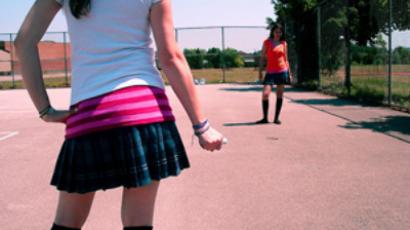UK hopes to reintroduce great bustard with Russia's help
It was once a popular bird to hunt in the UK, but the sport wiped the great bustard out. And now, British ornithologists have turned to their colleagues in Central Russia for help.
It is early summer in Russia’s Saratov region, and the miracle of nature is unfolding, just as it does every year – chicks are hatching.
But these are no ordinary baby birds – in a few short weeks they’ll travel thousands of miles to become ambassadors for their species in a foreign land.
“In 2003 a delegation from the UK visited us. They had read our work on the great bustard population and decided to look us up. They offered their cooperation, and the programme is now in its fifth year,” explained Anatoly Khrustov, the Saratov Head of the Severtsov Institute of Ecology and Evolution.
The great bustard is the world’s heaviest flying bird. Around 7,000 live in the wild in Russia, but in the UK, they were hunted to extinction almost two centuries ago.
Shortly, the chicks will be sent overseas to join a project of reintroducing the bird into the English countryside.
Because of the way land is farmed in the Saratov region, many great bustard eggs can’t survive in the wild. Tractor drivers alert the project staff when they spot them, and volunteers collect the eggs.
The eggs are then incubated, and when they hatch, the chicks are hand-fed, using a strange-looking suit, which prevents the birds from identifying a human.
When they’re a few weeks old, the birds are put into crate for a 17-hour train ride to Moscow, and a series of airplane flights to their new home.
They’re greeted there by David Waters, the head of the Great Bustard Project in the UK.
David has one of only a handful of great bustards in captivity. Fergus is also originally from Russia, but can’t survive in the wild because of a broken wing. Injuries during transportation are rare.
“Sometimes we’ll take the eggs, but replace them with dummy ones, so if a female does come back and continues to incubate them, we have an option of swapping eggs back. We’re only taking eggs that won’t hatch in the wild,” David Waters says.
The goal for the new British population is to start breeding there, but that hasn’t happened yet. Female great bustards start laying eggs when they’re two years old, but the males aren’t ready to fertilize them until they're a few years older.
Nevertheless, that long-awaited day is approaching fast.
Somewhere on Salisbury Plain is a nest containing great bustard eggs. There’s an excellent chance that this year’s batch will be viable. And if they are, in July, the first Great Bustards in more than 175 years will hatch in the UK.
“In 2007 we had the first wild great bustard nest in the UK for 178 years. A tremendous event for us! In 2008 we had nests again. We managed to recover eggs from those nests: they were well-incubated, but didn’t hatch. They were infertile. The likely explanation is that our males are simply not old enough. This year we know we have great bustards sitting on eggs; we know there’s been mating. Time will tell whether this is the year they’ll be fertile, and if we get something to hatch this year,” David Waters says.
And it will happen on Salisbury Plain, which – thanks to its use by the military for training – hasn’t changed much since great bustards last bred there in 1832.
And the project gave its first fruits on June 3 as the Great Bustard chicks were born on English soil for the first time since 1832.













